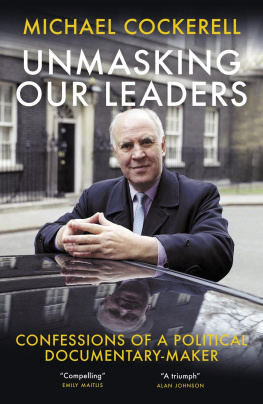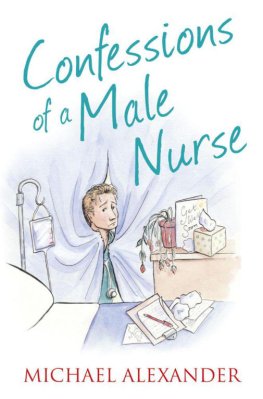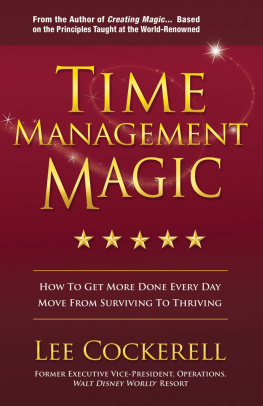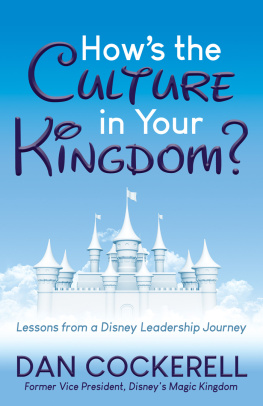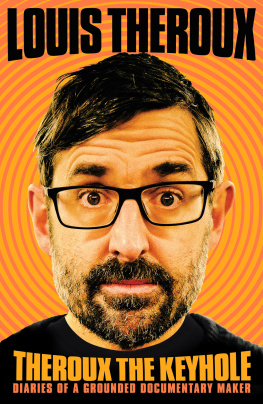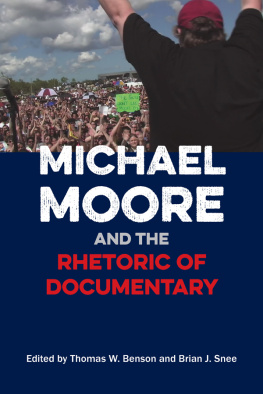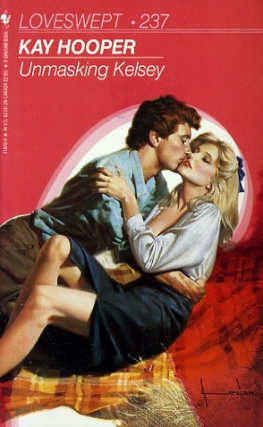Michael Cockerell - Unmasking our leaders : confessions of a political documentary-maker
Here you can read online Michael Cockerell - Unmasking our leaders : confessions of a political documentary-maker full text of the book (entire story) in english for free. Download pdf and epub, get meaning, cover and reviews about this ebook. year: 2021, genre: Detective and thriller. Description of the work, (preface) as well as reviews are available. Best literature library LitArk.com created for fans of good reading and offers a wide selection of genres:
Romance novel
Science fiction
Adventure
Detective
Science
History
Home and family
Prose
Art
Politics
Computer
Non-fiction
Religion
Business
Children
Humor
Choose a favorite category and find really read worthwhile books. Enjoy immersion in the world of imagination, feel the emotions of the characters or learn something new for yourself, make an fascinating discovery.
- Book:Unmasking our leaders : confessions of a political documentary-maker
- Author:
- Genre:
- Year:2021
- Rating:5 / 5
- Favourites:Add to favourites
- Your mark:
- 100
- 1
- 2
- 3
- 4
- 5
Unmasking our leaders : confessions of a political documentary-maker: summary, description and annotation
We offer to read an annotation, description, summary or preface (depends on what the author of the book "Unmasking our leaders : confessions of a political documentary-maker" wrote himself). If you haven't found the necessary information about the book — write in the comments, we will try to find it.
Unmasking our leaders : confessions of a political documentary-maker — read online for free the complete book (whole text) full work
Below is the text of the book, divided by pages. System saving the place of the last page read, allows you to conveniently read the book "Unmasking our leaders : confessions of a political documentary-maker" online for free, without having to search again every time where you left off. Put a bookmark, and you can go to the page where you finished reading at any time.
Font size:
Interval:
Bookmark:
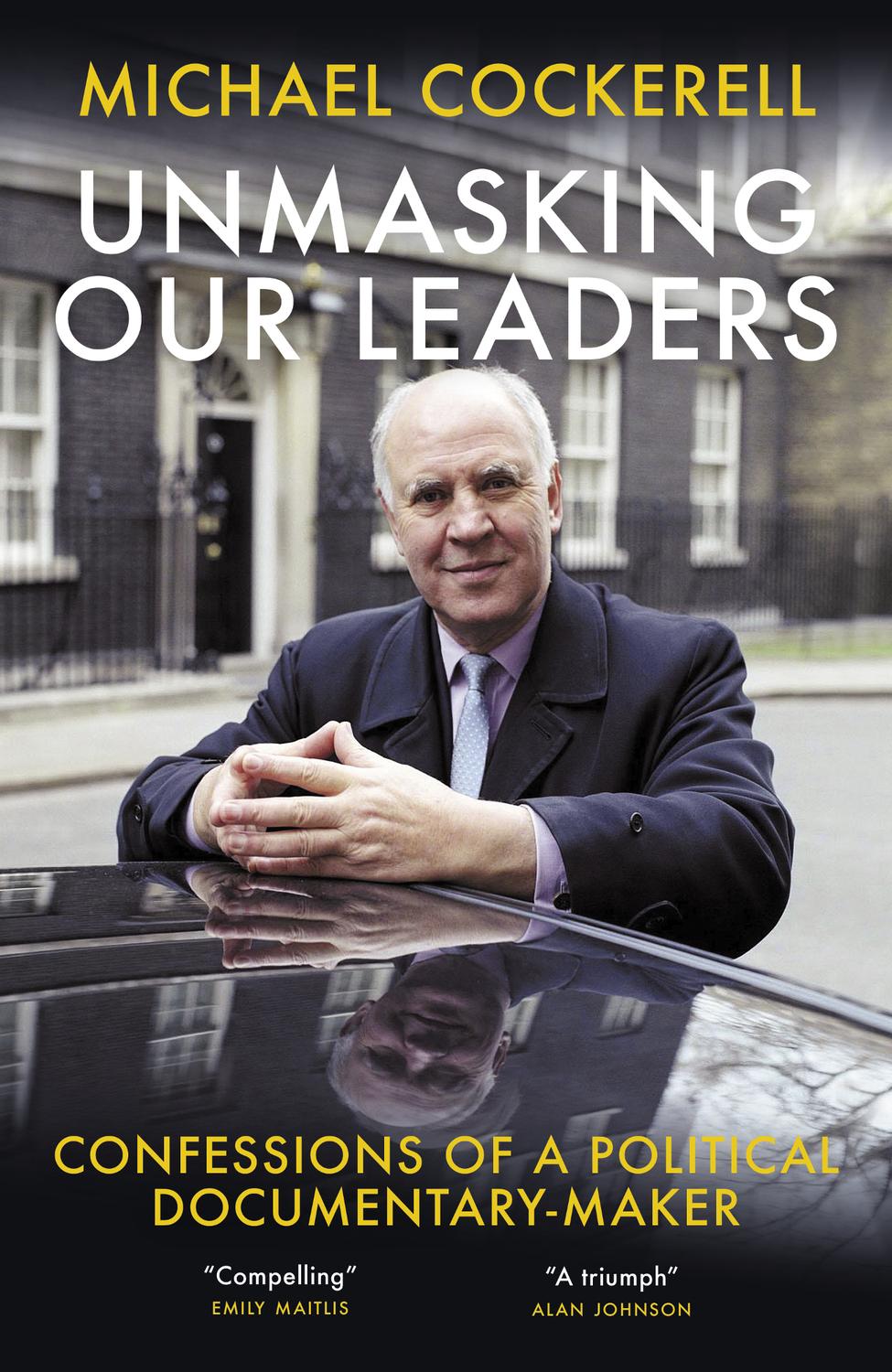
To my wonderful wife, Anna Lloyd, who never misses a trick.
S ome years ago, I thought of a deceptively simple question to ask a would-be Prime Minister: Do you have any doubts about your ability to fulfil the role of Prime Minister? Over the years nine of them replied.
The first was Harold Wilson, the northern-born son of an industrial chemist. At the age of forty-eight, he became the youngest Prime Minister of the twentieth century up till then. I have no doubt it is a gruelling job, said Wilson. The Prime Minister is finally responsible for all policy. But he cant know all the detail, and Id be a fool if I tried. And Id take good care that somebody in the Cabinet did and he can tell it me when its needed.
Ted Heath was the bachelor Prime Minister who was the Tories first working-class leader. He answered the question about whether he had any doubts with a two-letter word: No.
Labours Jim Callaghan, who left school at sixteen and is still the only man to have held all four great offices of state Chancellor, Home Secretary, Foreign Secretary and PM told me: Im going to be very arrogant. I had no doubts at all about my capacity to be Prime Minister of this country and I took it on with complete confidence.
I put the question to Margaret Thatcher on the eve of her becoming Britains first female Prime Minister: Well, I look at some of the other people whove held the job, and I really she paused Of course you have doubts. Of course you have doubts. And youre tremendously aware of the responsibility. But I havent just come to this out of the blue. In British politics you dont just go from the bottom to the top, you climb your way up the ladder.
John Major, the son of a circus performer who left school age fifteen and took over from Margaret Thatcher, said: I didnt know whether I could do the job. I wasnt expecting it yet. But when you walk through the door of No. 10 Downing Street, reality walks in with you.
Tony Blair, not short of charisma and self-confidence, said: The one thing I am quite sure about is that Id do the job to the best of my ability whilst people wanted me to do it. And Ive got a feeling that if you have a strong idea of what you want to do and believe in pushing it through, then you are in inverted commas a dictator if you are not, then you are weak. You know you pays your money and you takes your choice.
The Eton-and Oxford-educated David Cameron, who was to become the youngest PM in nearly two centuries, said: Look, if I had major doubts I wouldnt have put myself forward to lead my party in the first place. You have to be absolutely ready to take the difficult and big decisions you would have to take as Prime Minister, including sending troops to war. And I decided I was ready for that.
The vicars daughter Theresa May said: I dont tour the TV studios. I dont gossip over lunch. I dont drink in Parliaments bars. I dont wear my heart on my sleeve. I just get on with the job in front of me. My pitch is very simple: Im Theresa May, and Im the best person to be Prime Minister.
When I asked Boris Johnson, then Mayor of London, if he had any doubts about his ability to fulfil the role of Prime Minister, he replied: I think people who dont have doubts or anxieties about their ability to do things probably have something terrifyingly awry. You know, we all have worries and insecurities. And I think its a very tough job being Prime Minister. Obviously, if the ball were to come loose from the back of a scrum which it wont it would be a great, great thing to have a crack at.
Working in television for over half a century, I have been lucky enough to make films about all the past twelve Prime Ministers from the Eton-and Balliol-educated classics scholar Harold Macmillan to Alexander Boris de Pfeffel Johnson, the classics scholar educated at Eton and Balliol. I have also specialised in making candid profiles of many of our other top politicians who never quite made it to the top of the greasy pole including Barbara Castle, Enoch Powell, Roy Jenkins and Denis Healey, as well as the libidinous Alan Clark.
I remember a conversation I had with the late Professor Bob Mackenzie in my early days at the BBC. The LSE academic who doubled as a TV presenter and interviewer said to me: Imagine what it would be like if there were videos of Gladstone and Disraeli. That set me thinking: we well know what the two grand old men looked like, and we know a great deal of what they did. But what were they really like? What were their voices, their accents, their body language, their loves and hates, what made them tick, how would they have answered reporters questions? It inspired me to try to make a shelf-ful of films about our Prime Ministers and other leading modern politicians.
I have three criteria in choosing what some people call my victims and I call my subjects. They need to be or have been at the top of politics; they have to know where the bodies are buried and be prepared to talk candidly; and they have to have what Denis Healey famously called a hinterland an existence beyond politics. They had to be interesting enough to fill an hour of television. This book is the stories of these politicians who come in all shapes and sizes. It will tell who they are or were and what they are or were really like on and off camera. It is also a behind-the-scenes account of making the films about them and the coups and cock-ups that happen. It is a story of a life in political television and of filming round the world, being imprisoned in Africa and nearly killed in the Middle East.
The book will also tell the tragi-comic inside story of the battles for control over the years between the politicians and the broadcasters, and how the two sides have become increasingly savvy and sophisticated, with each accusing the other of dirty tricks and fake news. And it will reveal how I have managed to lull some of the wariest people in the land into candour.
One of the techniques I have always used is to show the politicians clips of their earlier lives and film their reactions as they watch themselves. It can be very revealing. Most politicians have strong views about television, but they rarely get the chance to watch it. I go to great lengths to find footage of them that they may well never have seen. It really opens them up. They are fascinated looking at their younger incarnations, surprised at their voices, which nearly always sound rather posher then than they do now. And the clips prompt long-buried memories of the way they once were. Sometimes they laugh, and on occasion, like with the old bruiser Denis Healey, they cry.
I remember Ken Clarke saying to me: How do you want me to play this?
I said: Ill show you film that we have dug up of your early days in politics and some more recent, and I want you to react naturally to what you see.
You mean you want me to sit here and shout at the television like I do at home? asked Clarke.
Youve got it in one, I replied.
The politicians tend to get so engrossed in watching themselves that they almost forget they are being filmed and I am able unobtrusively to chip in with questions. After one profile was broadcast, Labours fabled spin doctor Peter Mandelson glid (or whatever the past tense of glide is) up to me at a party and said: You do the most important thing you can do for a politician.
Whats that, Peter? I asked.
You make them appear human. He then glid away, just as I was about to say: Might be difficult with you, Peter. But the Prince of Darkness had dematerialised leaving only the faintest whiff of sulphur. His of course was a spin doctors take on my films. I dont make politicians appear human; I try to bring out their human side, which is often masked in conventional TV interviews featuring two men in suits drowning each other out.
Font size:
Interval:
Bookmark:
Similar books «Unmasking our leaders : confessions of a political documentary-maker»
Look at similar books to Unmasking our leaders : confessions of a political documentary-maker. We have selected literature similar in name and meaning in the hope of providing readers with more options to find new, interesting, not yet read works.
Discussion, reviews of the book Unmasking our leaders : confessions of a political documentary-maker and just readers' own opinions. Leave your comments, write what you think about the work, its meaning or the main characters. Specify what exactly you liked and what you didn't like, and why you think so.

